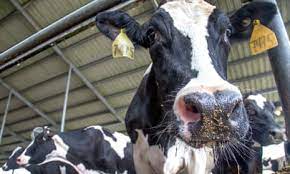In recent months, reports of bird flu outbreaks in US cattle have raised alarm among consumers, particularly those who regularly consume cow’s milk. The presence of avian influenza in livestock has led to questions about the safety of dairy products and their potential impact on human health.
Investigating the Situation
Bird flu, also known as avian influenza, is a viral infection that primarily affects birds. However, certain strains of the virus can also infect mammals, including cattle. While the risk of transmission to humans through consumption of infected meat or dairy products is considered low, concerns have arisen regarding the safety of cow’s milk in light of recent outbreaks.
Assessing the Risk
Understanding Transmission
The transmission of avian influenza from infected cattle to humans is rare but not impossible. While the virus is typically spread through direct contact with infected birds or their droppings, there is a theoretical risk of transmission through contaminated milk or dairy products. However, stringent food safety protocols and pasteurization methods help mitigate this risk to a considerable extent.
Ensuring Milk Safety
Importance of Pasteurization
Pasteurization, a process that involves heating milk to kill harmful bacteria and pathogens, is a crucial step in ensuring the safety of dairy products. By effectively eliminating potential contaminants, including viruses such as avian influenza, pasteurization helps safeguard the public against foodborne illnesses and infections.
Addressing Consumer Concerns
Providing Reassurance
While the presence of bird flu in US cattle is a cause for concern, it is essential to emphasize that properly pasteurized cow’s milk remains safe for consumption. The US Food and Drug Administration (FDA) and other regulatory agencies closely monitor dairy production and implement stringent safety measures to protect consumers.
Promoting Informed Choices
In conclusion, while the recent outbreaks of bird flu in US cattle have sparked concerns about the safety of cow’s milk, it is important to rely on scientific evidence and regulatory oversight to assess the risk accurately. By adhering to established food safety guidelines and consuming properly pasteurized dairy products, consumers can continue to enjoy the nutritional benefits of milk without compromising their health.




